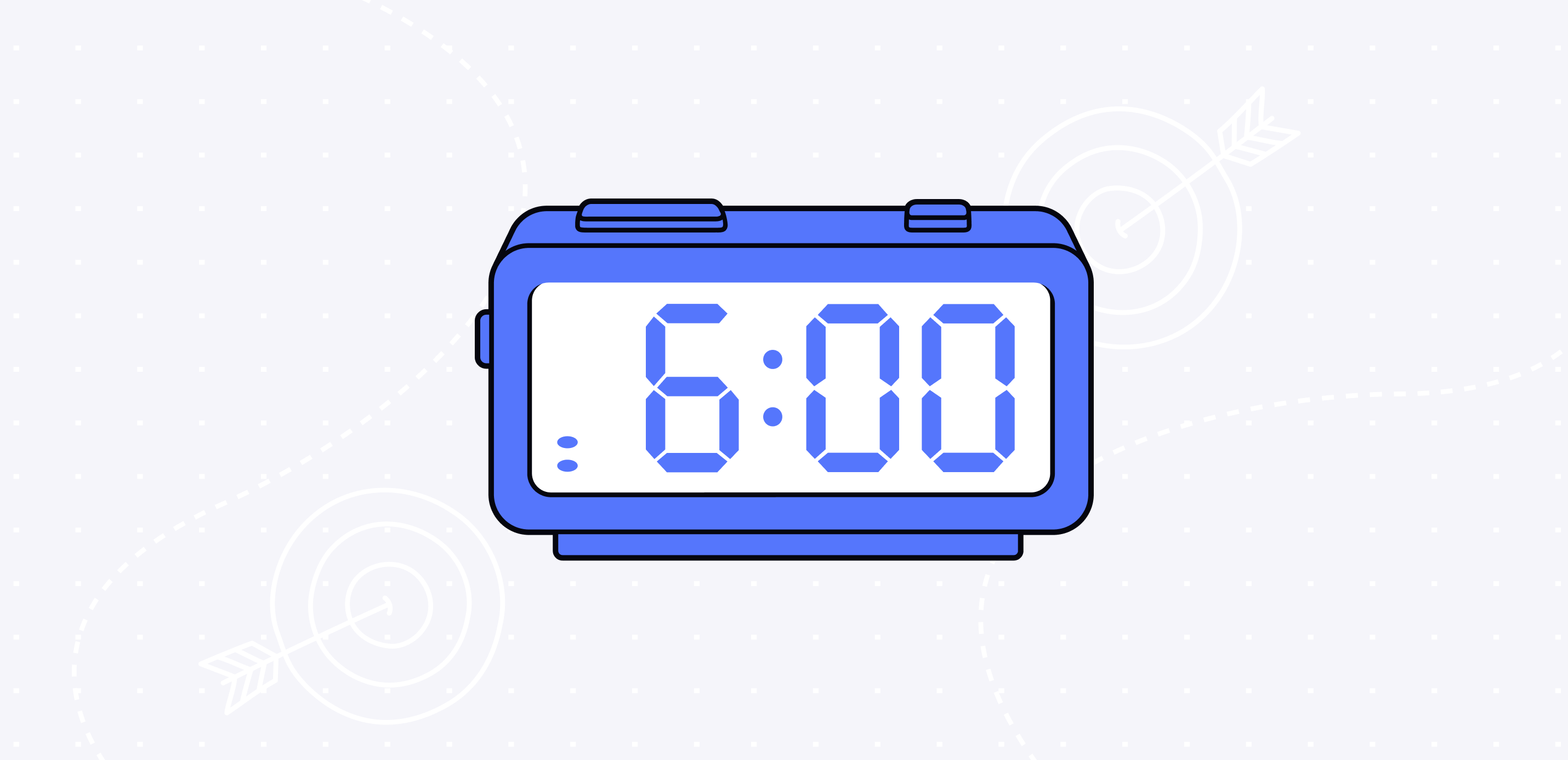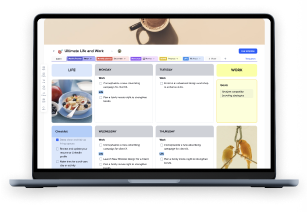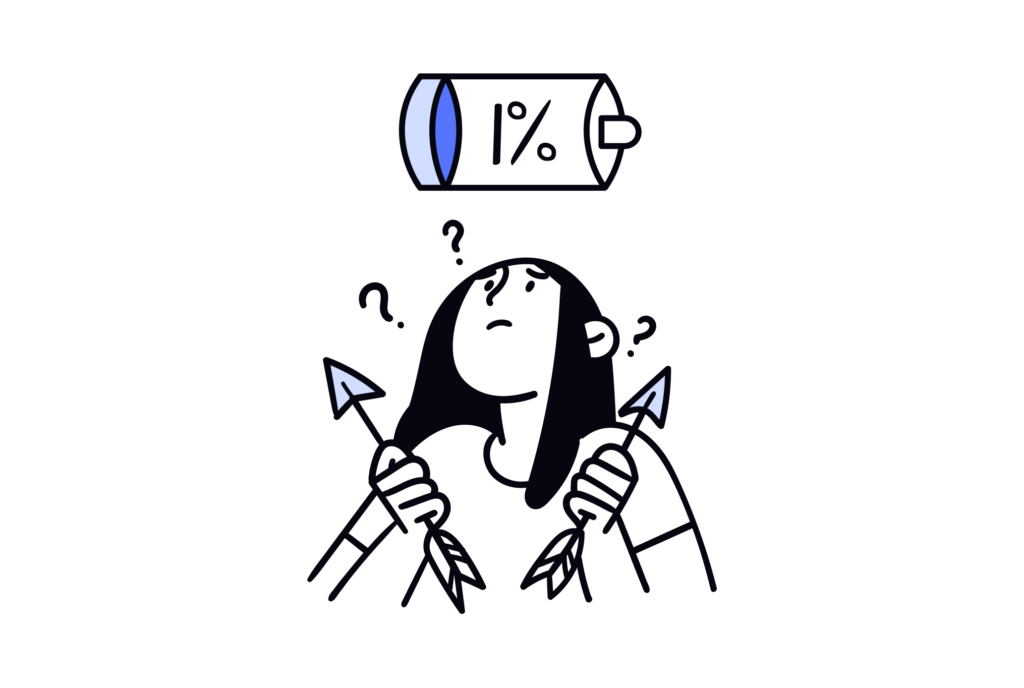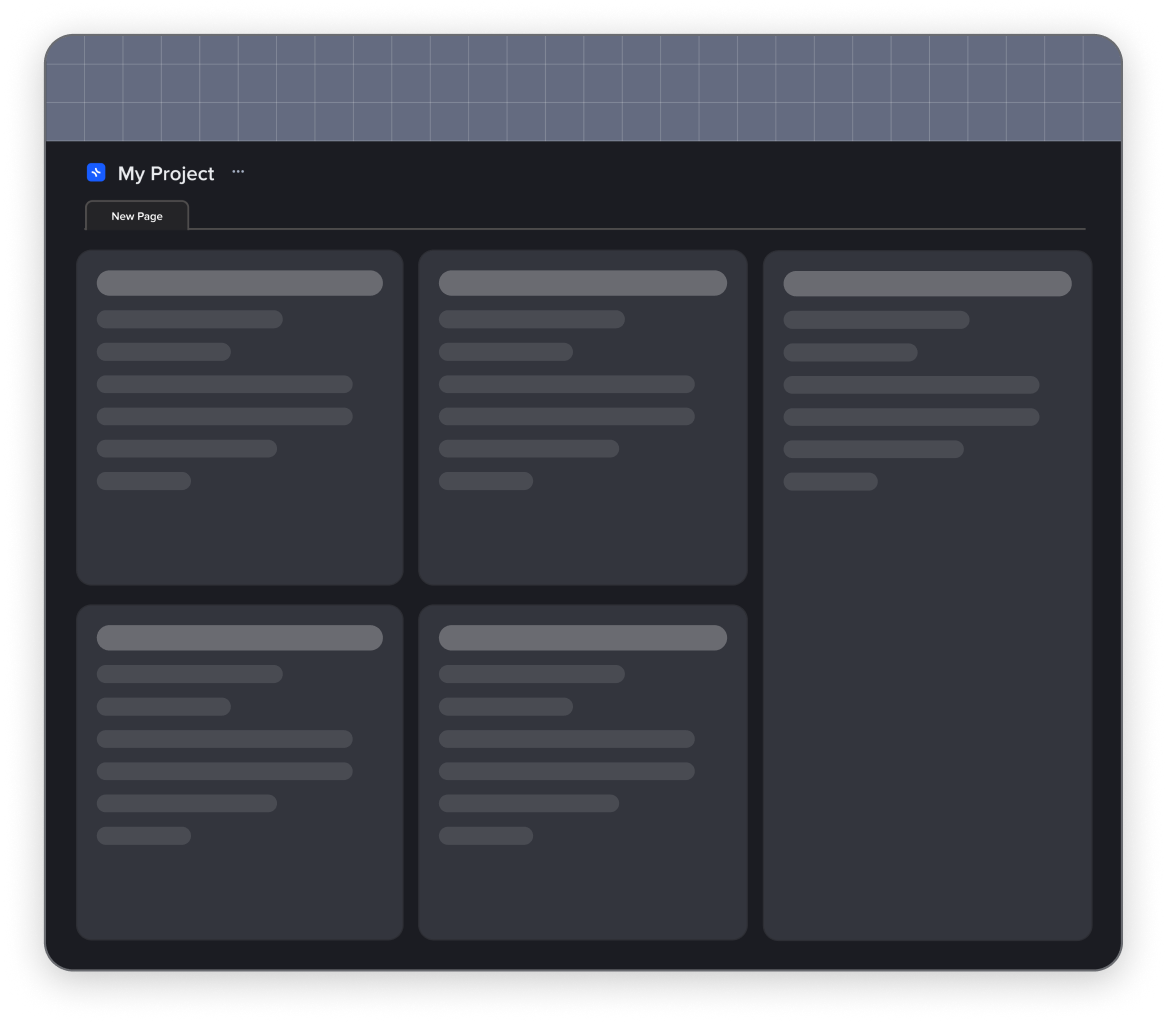Do you belong to this unique club of organized people? If not, we can get you there. If so, we can help you strengthen your position.
There is no one-fits-all answer on how to get organized. Depending on your goals and lifestyle, your way of getting more organized will differ from anyone else’s. However, success would only be possible with:
- clearly defined goals,
- hard work,
- desire to change,
- consistency,
- persistence.
The main purpose of the article you’re about to read is to review everything available to learn how to organize your life.
We checked different methods, other people’s suggestions and experiences, books on self-organizations, etc.
Spoiler – it is more important than we thought and a bit easier than it might seem if you’re determined to reach your goal, know what to do, and have appropriate time management tools.
So, let’s open xTiles and start organizing your life without delay. Procrastination is another thing we will need to fix to become organized…but later.
Organize your life depending on your needs and how you feel
There will be many suggestions and recommendations in this article on how to become organized in your life. Still, we would like to start with the most important, the one that should become a base for your organization.
Before we start, we need to tell you one huge secret – becoming organized and staying organized are two different tasks. If your new way of living isn’t stressful, your important tasks are prioritized, and the minor ones don’t stress you out, remaining good organization won’t be a struggle.
Listen to yourself
You’re free to try any methods and techniques you want, but if they don’t bring any results after some time, go and try something else. There’s no versatile way to become organized. That’s why we’ve gathered everything we use ourselves and everything that helped us so that you have many options to choose from.
Getting new habits and organizing your life shouldn’t be about breaking yourself. Organized people can clearly hear their inner voices even though life and the world is pretty loud.
Instead of forcing yourself to do what you don’t like, embrace your natural inclinations and get the best of them. Your individual tasks should be aligned with your desires and current capacities.
You may start with the xTiles Journaling template to better understand your needs. It will help you track your thoughts and feelings about the changes you’re bringing into your life. And it will help you spot if something makes you feel worse, so you can stop using it.
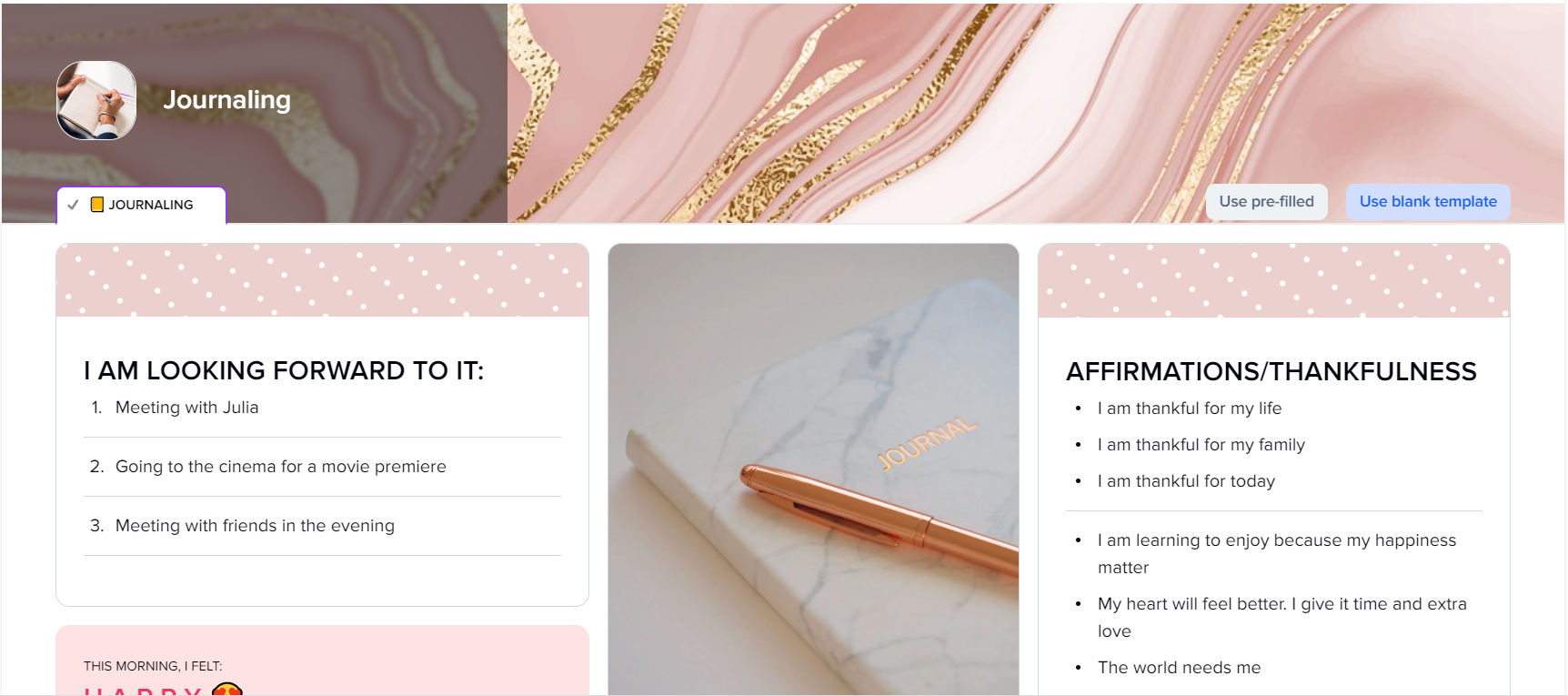
Plan ahead and plan a little
Many would tell you that to get organized, you need to start planning. And they are right.
Get your plans, goals, wishes, and desires out of your head. That’s the only way they can get weight and become real.
There are many options. If you prefer writing things down, you may try a good old notebook or sticky notes. Our beloved to-do lists will work as well on them. However, traditional tools may slow you down a bit; nevertheless, it’s important to feel productive and comfortable when striving to live in an organized manner.
However, if you’re new to this, you may try the most optimal of them – xTiles Weekly Planner. It’s a digital planner, one of those storage solutions that is at your fingertips at all times. You can save all of your data in the same spot with easy and quick access to it. The best friend that helps you deal with all the things you need to do.
The template will help you prioritize tasks, streamline work, delegate tasks if possible, reduce the stress of procrastination, and provide you with a visual representation of your progress if you use it regularly. It also allows you to set reminders and due dates if you have a tight schedule and provides visibility in Calendar mode.
Except for this, you may have a different planner for your goals and other tasks that can’t be achieved in a week. You may try to outline your wishes and dreams. Please note that these two work together just perfectly – the long-distance planner for noting your big dreams and the weekly planner for going to them step-by-step.
PS. Don’t forget to plan your free time and rest as well, because productive rest is essential for maintaining productivity in your work.
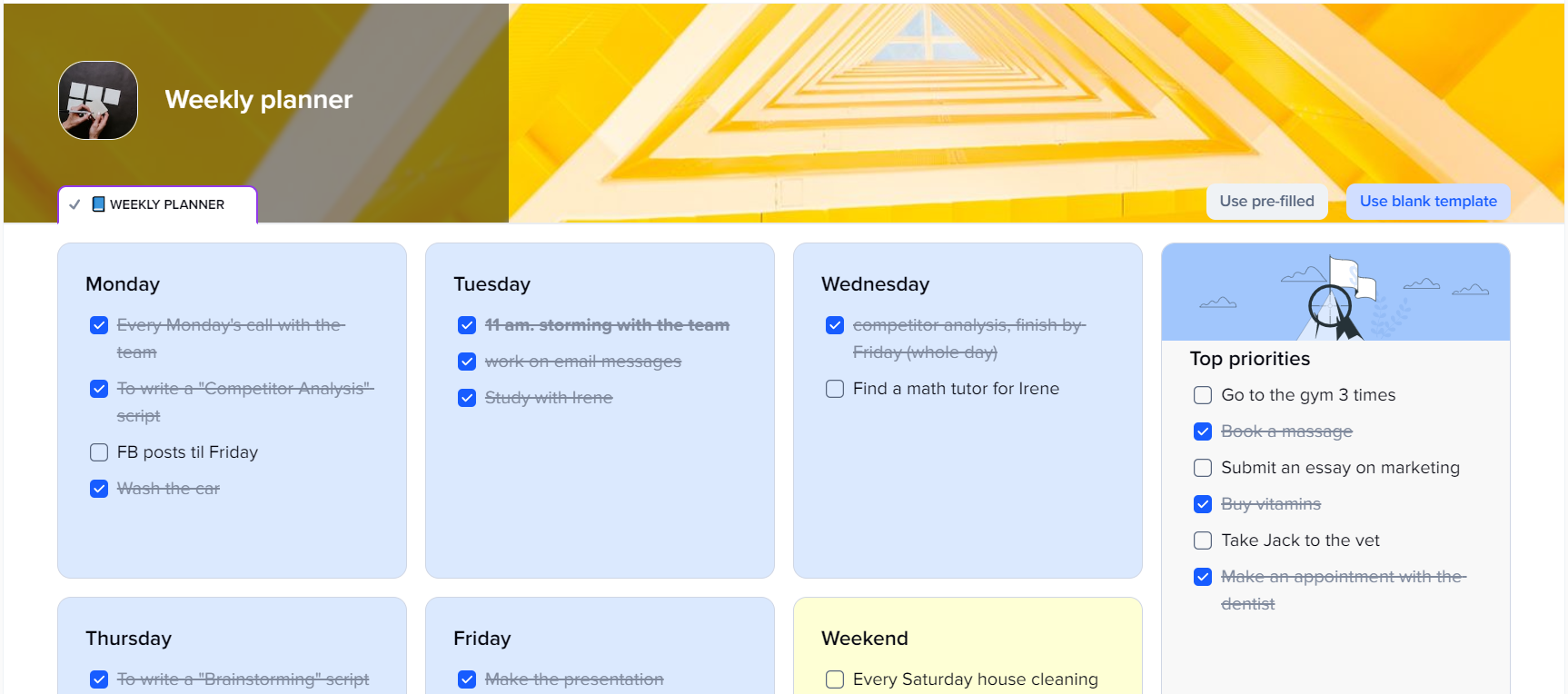
Establish a routine you would like to follow to become organized
What is your first impression when you hear the words “daily routine”? Something boring? Something you get tired of easily?
Poet W. H. Auden once said that:
“Routine, in an intelligent man, is a sign of ambition.”
As a rule, when someone doesn’t like their daily routine, they will break it without much hesitation once something more interesting to do appears. A fixed routine is a skeleton for your self-organization. It will help you return to your everyday life even if you are going through something exceptional.
Create a to-do list of all steps of your routine. The moment all those actions become automatic, you can delete that to-do list or throw it away.
An efficient routine consists of our habits and actions we repeat without consideration. Stop for a second and try to count the percentage of your healthy and bad habits. If the good ones prevail, congratulations. What is your secret? However, if the bad ones outnumber the healthy ones or you can barely keep a fine line between them, to start being more organized without fixing that might not work in the long run.
Develop new healthy habits
UDeveloping new habits should start with thinking about why this is important for you. The reasons have to be strong enough so that you won’t stop in the middle of the way.
When learning new habits, whether it’s regular exercising or decision-making, focusing on the journey rather than a destination is better and is very important to achieve the exact results you dream of.
There are many approaches and tips. For example, Benjamin Franklin developed the 13-weeks Project of Moral Perfection. Every week was devoted to improving a certain virtue, and the progress was carefully noted in the calendar. He repeated his Project every year throughout his life.
Getting into good habits takes time and consistency. Progress takes weeks and months, not days. So, prepare yourself mentally for the work that is ahead of you. Your future self will thank you.
The xTiles Habit Tracker template may become the tool to make this path easier and your progress more visible. You can track how well you were doing during a week, have your goal in front of you, and concentrate on the small reward you define for yourself. Yes, when you celebrate small wins, you motivate yourself to move forward.
Additionally, the template offers options and space for content to inspire you to keep moving. You can color code different types of tasks to see what needs to be done quickly.
Sometimes, a community of people with the same goals is a vital part of starting and keeping moving. You show your progress, share your ideas, inspire others, and get your dose of inspiration.
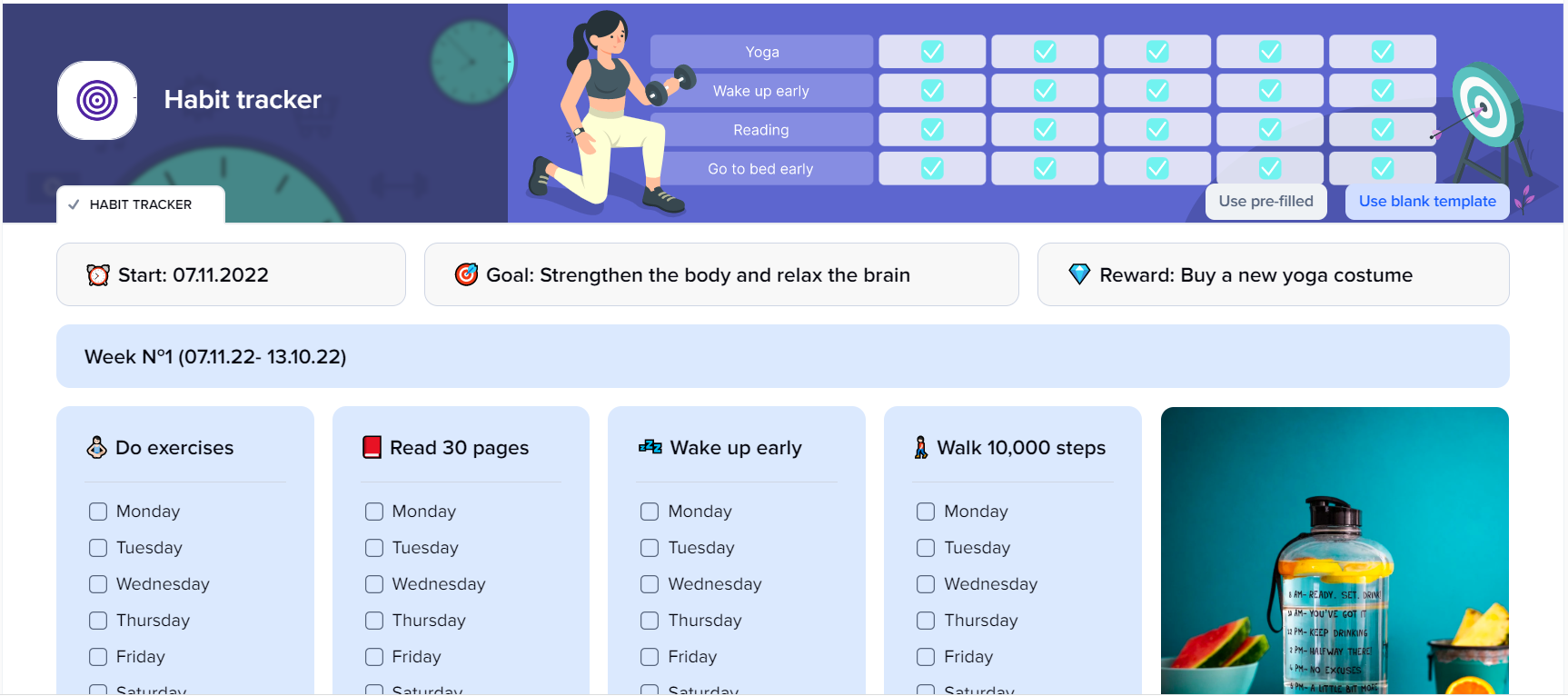
Set your tasks wisely
Have you ever noticed that not all your tasks were finished? Have any ideas why? Maybe the task wasn’t that important, maybe something distracted you, or maybe the task itself was set badly.
Task setting is the first step to getting them done. There are different suggestions on how to set your tasks. Some recommend making them realistic, and some recommend making them unrealistic to challenge yourself.
However, if your goal is to be organized and productive, the second approach might not be your best choice. You may implement it from time to time with certain tasks to learn your limits, but on a regular basis, it might make your life chaotic and unstable. Manageable steps will work much better in the long run.
One of the best ways to set goals and tasks wisely is known as SMART, where:
S – specific
M – measurable
A – achievable
R – relevant
T – time-bound
Those five factors will help you to set goals reasonably and feel organized in whatever you do. If it’s hard to keep that in mind every time you plan your week or day, you may use the xTiles Smart Goals template to learn the system and bring it to automatism.
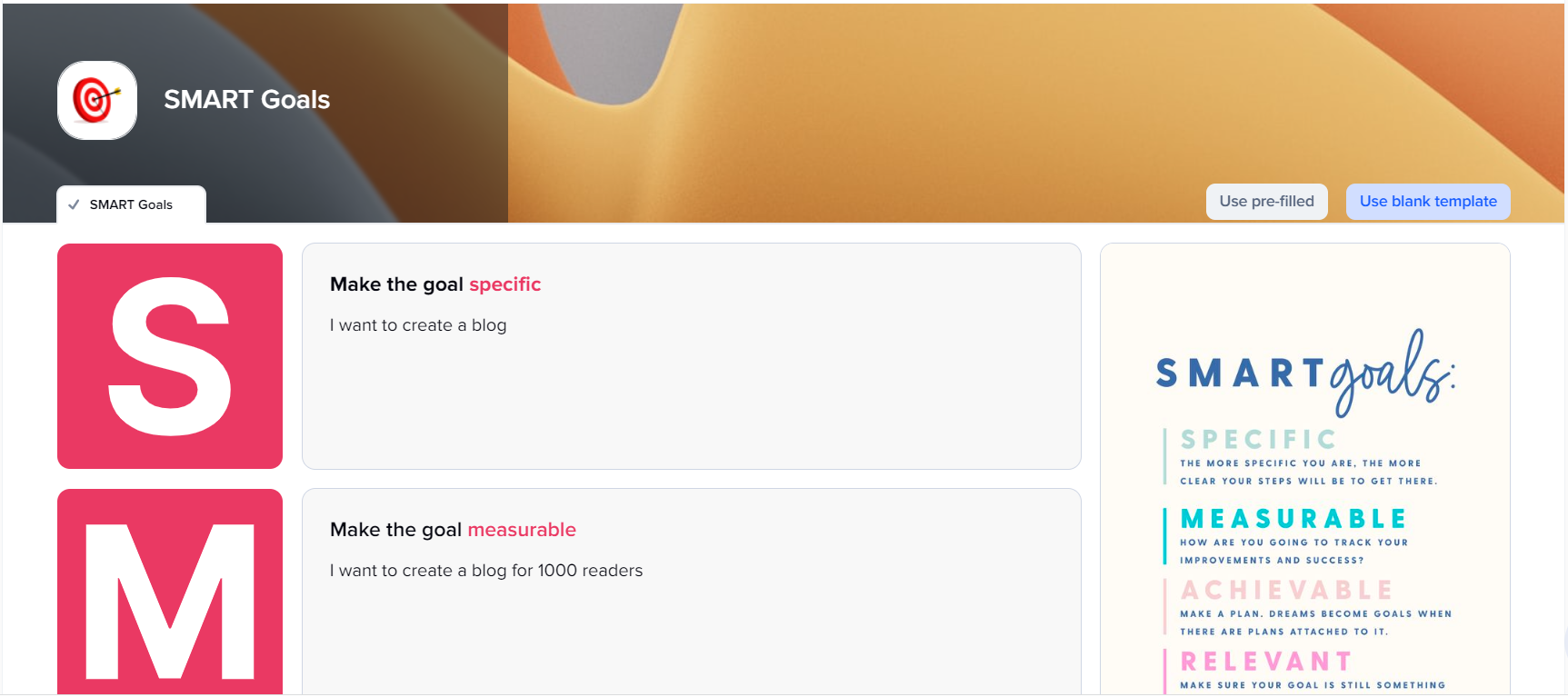
Prioritize your tasks and goals
This tip is connected to the first one about short-term and long-term goals separation. Within these two lists, you need to prioritize your most important tasks. That will help you omit the temptation to do only the easiest ones, keeping the most difficult ones for the future you.
We would like to suggest a time management technique called “Eat the frog.” It may sound super weird, but it derives from the famous quote by Mark Twain:
“If it’s your job to eat a frog, it’s best to do it first thing in the morning”.
Long story short, start your day with the task you like the least. The rest of your day will be easier, smoother, and without a lingering threat. Clean your junk mail, start a new project you hate even though you haven’t devoted a minute to it yet, meet with family members who like to ask uncomfortable questions, etc. The rest of your day will be the happiest time of your life once you’re done with that one task.
Prioritizing might be hard due to different reasons. You might be obliged to a person who asked you for a favor, it might be tempting to start with the easier task, etc.
You may try xTiles Management Matrix. It allows you to divide your tasks or goals into four possible categories:
- important and urgent
- important but not urgent
- not important but urgent
- not important and not urgent
(PS. The last ones can sometimes be removed without any harm to your result, progress, or future).
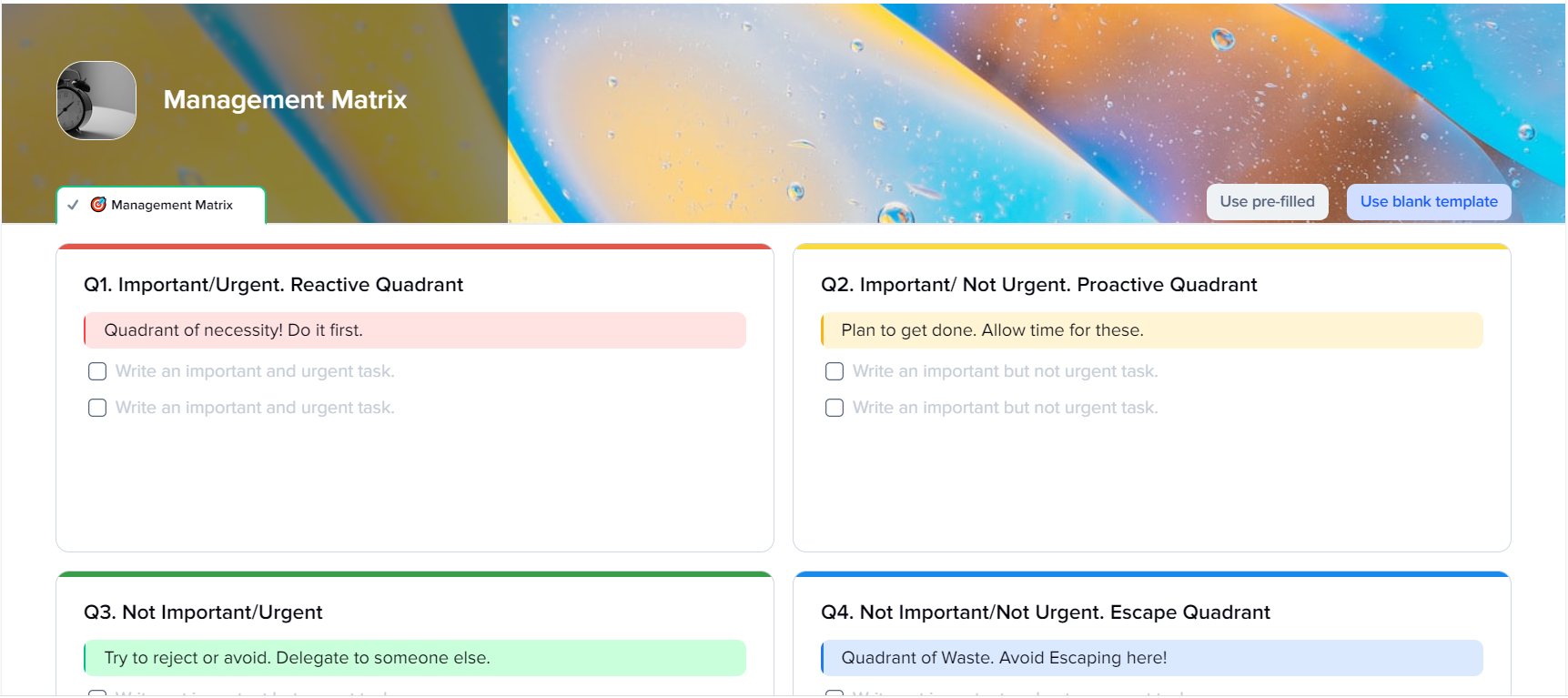
Minimize your time blockers whenever possible
There always will be something to distract you from doing what you need to do. Sometimes, it’s something nice, like watching an extra episode of that new series you liked so much or spending a bit more time with your friends in your favorite restaurant. Sometimes, it might be something that tires you more than the actual job, so when you have time to buckle down again, you can barely think about what you need to do.
How to avoid that? Well, it’s impossible to avoid that entirely because accidents and surprises happen when we least expect them. However, scheduling every moment helps to minimize potential blockers.
Plan your meetings, important tasks, chores, routine, leisure time, etc., by using the xTiles Daily Planner template to get a clear idea of what can possibly stop or slow you. It’s great for managing big and small tasks, keeping everything organized and every needed detail at hand, and tracking your habits. A daily to-do list will help you go from a task to a task, and putting ticks in the boxes will inspire you to accomplish more.
Also, if you don’t like the idea of having a separate document for your habit tracking, you may try this template. It may help you be organized at home and in the office.
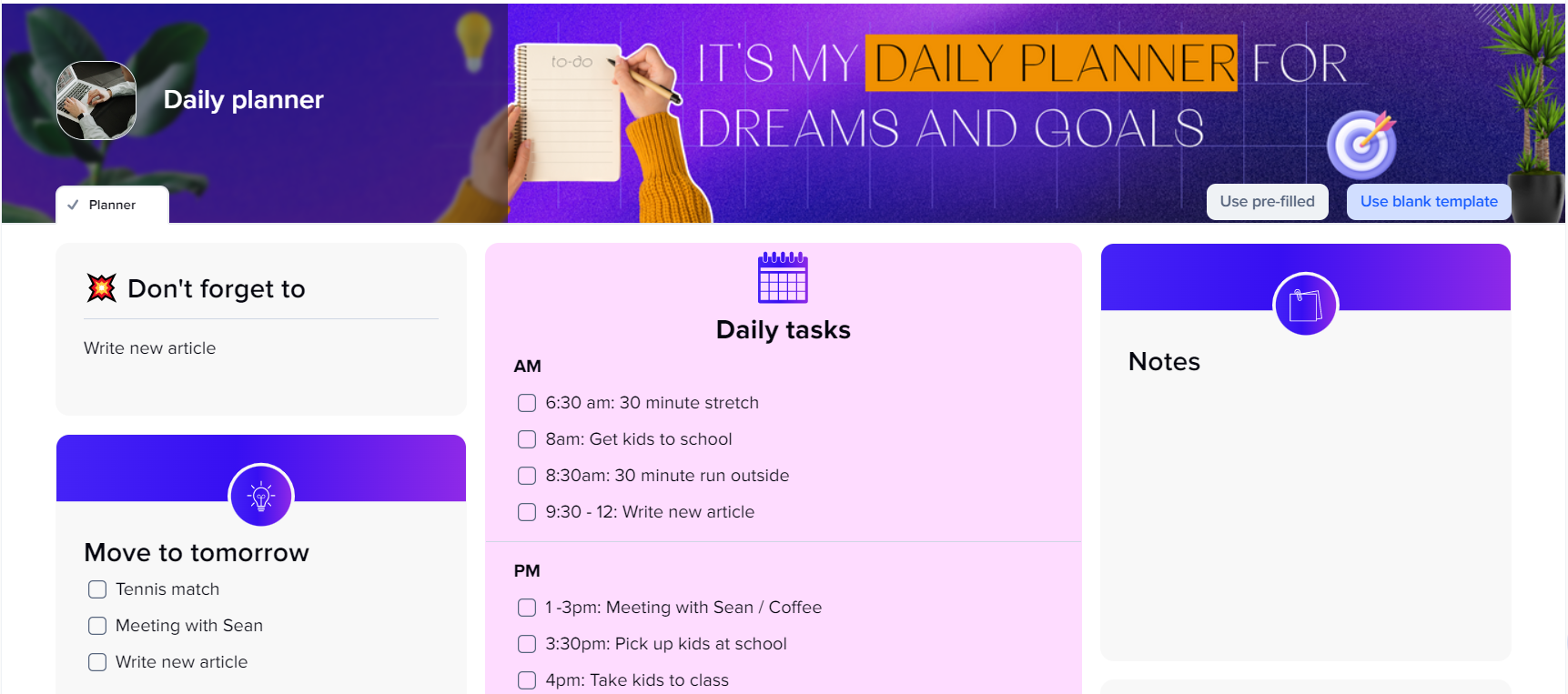
Don’t try to save the world on your own
Being a strong and independent person doesn’t mean taking care of everything on your own. That’s the surest way to burn out. Asking for help is okay, delegating tasks to other people in your team is okay, sharing chores with your partner is okay, and asking professionals for their assistance instead of applying questionable DIY methods is more than okay. Your to-do lists will become much shorter and nicer once you learn this skill.
Doing everything on your own leaves you less time for yourself and the things you like. Delegating your tasks to other people helps you focus on what is important to you. That’s how you save energy for what can’t be done by someone else. And most importantly, that’s how you can show your trust and validation.
Declutter regularly
Overstuffed space is more destructive than you would think. Also, it’s more depressive than you would think. Don’t let things pile up so that they start to seem impossible to manage.
The rule can be applied to digital clutter, too. All those emails, the tasks you accomplished weeks ago, and dozens of funny memes you saved just in case steal your attention and energy.
Set aside time to get rid of everything you don’t need anymore. Take time to create a to-do list with things you don’t need anymore, evaluate them, and think about what will change without them so that you will be ready to say “Goodbye.”
You may schedule routine decluttering every week or month. Regular decluttering will also help you be organized when moving to a new place.
However, there’s no need to throw away the stuff you don’t need anymore. If it still is in good condition, you may donate it or try to sell it, so you will have money on new stuff… just kidding. 😀
Avoid impulsive purchases
Once you get rid of one thing that was a waste of space and time, don’t replace it with something else once you see it. Before going shopping, make a list of what you need to buy. If the item that shouts out “buy me” isn’t on the list, you didn’t need it in the first place. You may try the xTiles Shopping List template to control what you’re buying.
However, if weeks pass and you still think about that thing you didn’t buy, maybe it’s worth considering getting it. For this purpose, you may use the xTiles Wish List template. It was created for stuff more significant than grocery shopping, like furniture, clothes, cosmetics, etc.

Teach yourself to keep things in their places
Putting things in their place once you finish using them saves your time and may boost your productivity.
Not all things may have an appropriate place. It may seem like they belong to chaos, and even if you wanted, there would be nowhere to put them. In this case, you need to create the place. Mostly, it concerns your files. Arrange the system of folders with eloquent names. You need to know what is there straight away without opening it.
You may create a document with links to the most important files to have easy and fast access. xTiles is perfectly suitable for saving your data to cloud storage and offering you a wide range of organizing options to make a list super easy to use.
Teach yourself to make backup copies of important files
Even the best of us have lost all of our work due to software glitches, or computer crashes at least once. It takes a second to ruin everything we were working on for hours or days. For this reason, putting your files on cloud storage may be the best decision. However, it will be much harder if you don’t have them organized. You may end up saving something unnecessary.
If you work with files too big to be put in storage, you may use an external hard drive. In this case, you may need reminders every now and then to save the files. It’s easier with cloud storage as you can set up automatic backups and forget about doing it manually every time you amend. For example:
- your writing,
- your projects,
- collections,
- etc.,
will be totally safe with xTiles.
Postpone procrastination
Finally, we’ve got here even though we postponed it for so long. Procrastination is the worst of bad habits. It will be the final boss to beat. However, if you implement at least half of the tips on how to be a more organized person we gave you above, your procrastination has no chance.
The general rule of thumb is the longer you wait to start, the harder it will be to accomplish. Don’t mix up procrastination with laziness. These two are different. Laziness involves doing nothing at all, whereas activities like watching TV series or TikToks may occupy your time but typically don’t contribute to positive outcomes.
So, how do you avoid procrastination? Set deadlines without leaving space for distractions. Think about why it is important to get the job done as soon as possible. Maybe you look for any other way of spending your time except doing the task because you don’t want to do it. Then, maybe you may distribute the task to someone else. Define its priority using our Management Matrix template.
Books on how to be organized
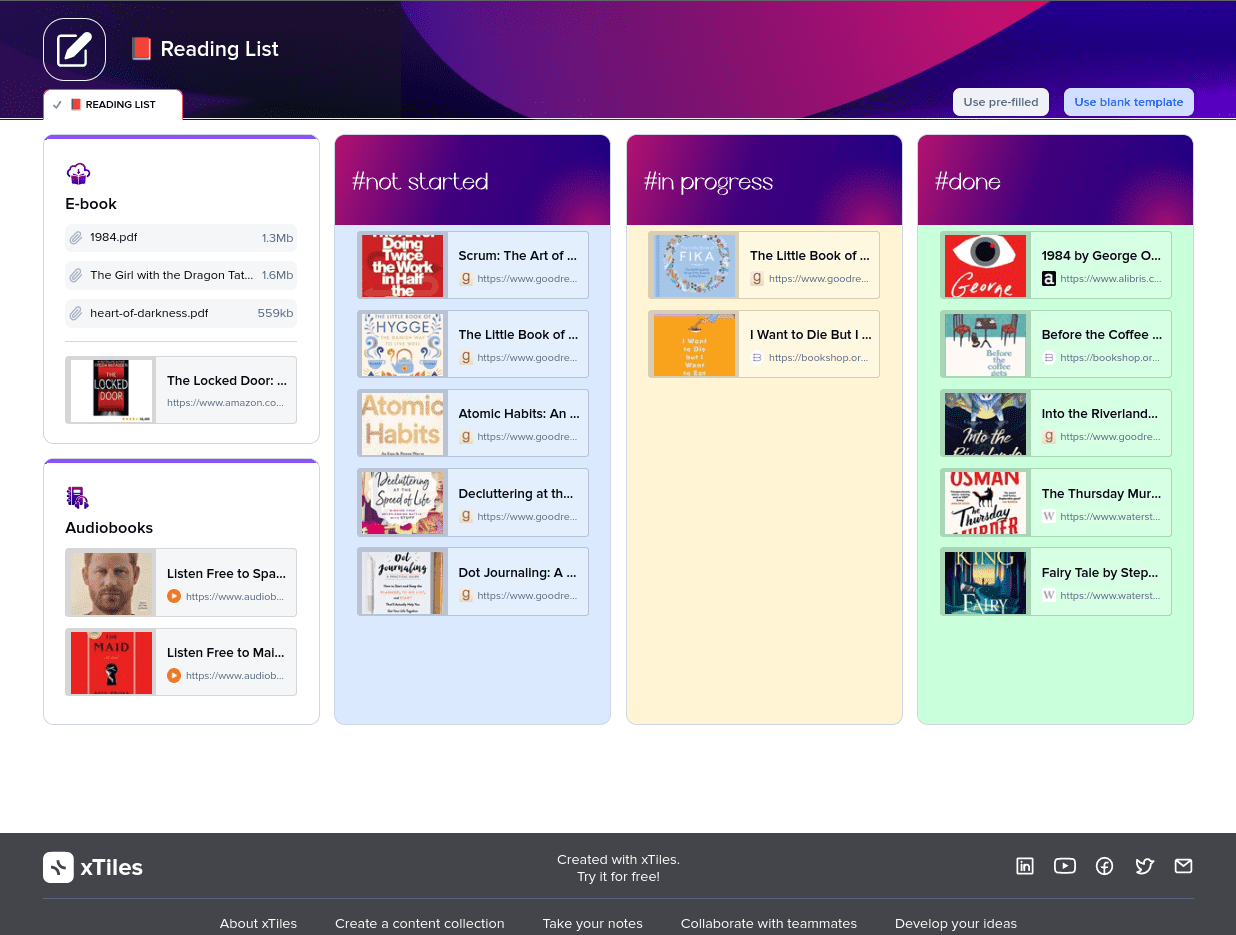
If you would like some homework, here are a couple of books that are widely considered to be the best in this sphere.
- Scrum: The Art of Doing Twice the Work in Half the Time by Jeff Sutherland
If you want to learn how to save time on everyday tasks. The book is usually associated with office workers. However, no matter what kind of work you do, there are things that may make it easier.
- The Little Book of Hygge: The Danish Way to Live Well by Meik Wiking
The book is about organizing the life around you in a nice cozy way.
The book will give you proven techniques and reveal strategies to create good habits, get rid of bad ones, and organize your routine in a healthy way.
The book will help you to find the balance between the house with too much stuff and the house with not enough stuff.
- Dot Journaling: A Practical Guide: How to Start and Keep the Planner, To-Do List, and Diary That’ll Actually Help You Get Your Life Together by Rachel Wilkerson Miller
The book will teach you how to write down important information, which is one of the first steps to organizing your life.
Summing Up
Many people assume that organizational skills are missing in their DNA. They are sure that if you weren’t born with it, you wouldn’t learn how to do it. So, they give up trying to get everything in order. However, as with any other soft skill, the ability to organize everything can be learned over time. Being a beautiful mess or disaster might sound romantic. However, no organization is still an organization, but the one that hurts you, steals your potential, and leads you in the wrong direction, straight to burnout.
FAQ
1. How can I tailor my organizational approach to fit my unique goals and lifestyle?
Depending on your goals and lifestyle, your method of becoming more organized will vary. However, success generally requires clearly defined goals, hard work, a desire to change, consistency, and persistence.
2. What is the significance of routines in achieving organizational success?
Establishing a routine provides a structured framework for self-organization, helping you navigate through daily tasks even during exceptional circumstances. A routine consists of habits and repeated actions, which are essential for maintaining organization in the long run.
3. How can I effectively prioritize tasks and goals to stay organized?
Prioritizing tasks involves separating long-term goals from weekly tasks and focusing on the most important ones. The SMART goal-setting method (Specific, Measurable, Achievable, Relevant, Time-bound) can guide you in setting reasonable goals and tasks to maintain organization.
4. How can I minimize distractions and time blockers to enhance productivity?
Scheduling every moment of your day can help minimize potential distractions and blockers. Utilizing tools like the xTiles Daily Planner template allows for efficient time management, helping you stay organized both at home and in the office. Additionally, delegating tasks and seeking assistance when needed can lighten your workload and boost productivity.


